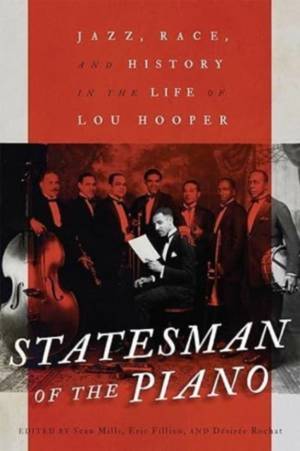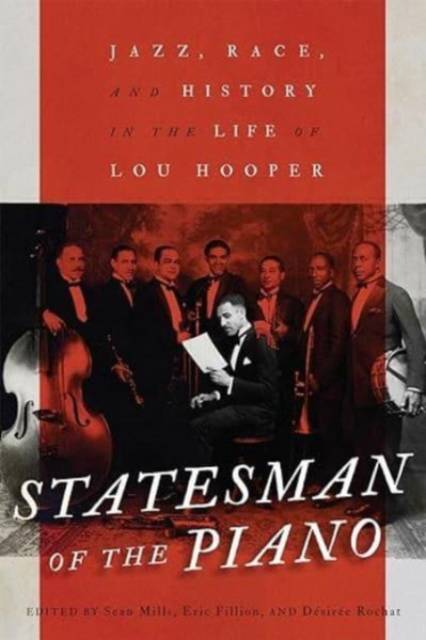
- Afhalen na 1 uur in een winkel met voorraad
- Gratis thuislevering in België vanaf € 30
- Ruim aanbod met 7 miljoen producten
- Afhalen na 1 uur in een winkel met voorraad
- Gratis thuislevering in België vanaf € 30
- Ruim aanbod met 7 miljoen producten
Zoeken
Statesman of the Piano
Jazz, Race, and History in the Life of Lou Hooper Volume 266
€ 54,45
+ 108 punten
Omschrijving
Ontario-born jazz pianist Lou Hooper (1894-1977) began his professional career in Detroit, accompanying blues singers such as Ma Rainey at the legendary Koppin Theatre. In 1921 he moved to Harlem, performing alongside Paul Robeson and recording extensively in and around Tin Pan Alley, before moving to Montreal in the 1930s. Prolific and influential, Hooper was an early teacher of Oscar Peterson and deeply involved in the jazz community in Montreal. When the Second World War broke out he joined the Canadian Armed Forces and entertained the troops in Europe. Near the end of his life Hooper came to prominence for his exceptional career and place in the history of jazz, inspiring an autobiography that was never published. Statesman of the Piano makes this document widely available for the first time and includes photographs, concert programs, lyrics, and other documents to reconstruct his life and times. Historians, archivists, musicians, and cultural critics provide annotations and commentary, examining some of the themes that emerge from Hooper's writing and music. Statesman of the Piano sparks new conversations about Hooper's legacy while shedding light on the cross-border travels and wartime experiences of Black musicians, the politics of archiving and curating, and the connections between race and music in the twentieth century.
Specificaties
Betrokkenen
- Uitgeverij:
Inhoud
- Aantal bladzijden:
- 280
- Taal:
- Engels
- Reeks:
Eigenschappen
- Productcode (EAN):
- 9780228018803
- Verschijningsdatum:
- 15/09/2023
- Uitvoering:
- Hardcover
- Formaat:
- Genaaid
- Afmetingen:
- 152 mm x 229 mm
- Gewicht:
- 548 g

Alleen bij Standaard Boekhandel
+ 108 punten op je klantenkaart van Standaard Boekhandel
Beoordelingen
We publiceren alleen reviews die voldoen aan de voorwaarden voor reviews. Bekijk onze voorwaarden voor reviews.










